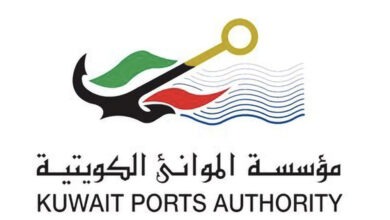45% of government entities slash spending, cut costs this fiscal year
Disbursements by 39 government agencies were canceled or reduced for various unnecessary items, such as bonuses, local and international conferences, hospitality expenses, and other extravagantly spent items.

• The current budget totals KD 24.5 billion, a 6.6% decrease from last year’s KD 25.2 billion, while the net deficit of KD 13.3 billion has strained the General Reserve Fund.
• The Ministry of Finance must reduce budgets for exhibitions, training, missions, research, and non-essential contracts by 50%.
• The Ministry of Finance has been directed to spearhead efforts to manage budget growth, ensuring that these measures do not adversely affect the performance of government entities.
The general budget figures show that approximately 45% of government entities successfully reduced their expenditure estimates this fiscal year by eliminating unnecessary costs and streamlining spending on approved items, according to Al Qabas newspaper.
The figures showed that 39 government agencies, including 24 attachés and 15 ministries out of 70, reduced their expenses. This led to a decrease in the estimated expenses in the general budget for the fiscal year 2024/2025 compared to the previous year’s estimates for 2023/2024.
Disbursements were cancelled or reduced for various unnecessary items, such as bonuses, local and international conferences, hospitality expenses, and other extravagantly disbursed items.
According to the current year’s budget law, government agency expenses total KD 24.5 billion, reflecting a 6.6% decrease from the previous year’s record high of KD 25.2 billion.
The net financial deficit in recent years has amounted to about KD 13.3 billion, significantly impacting the Kuwait General Reserve Fund, which has been used to cover these deficits. This situation led to a major liquidity crisis, with government statements previously confirming that the fund’s liquidity was nearly depleted.
Decisive steps to slash expenses
The persistent fiscal deficit in the general budget and the expectation of depleting the General Reserve Fund’s liquidity have prompted government agencies to take more decisive steps to cut expenses and rationalize spending. The government instructed the Ministry of Finance to lead these efforts by implementing measures to control budget growth, ensuring that these actions do not negatively impact the performance of government entities.
The Ministry of Finance used its supervisory powers to reduce many budget items, including bonuses, allowances, performance rewards, non-Kuwaiti contracts, funds allocated for work teams, and local and international training missions. Additionally, reductions were made in car rentals, hospitality, and reception expenses.
Strategic planning
Throughout the past period, the Ministry of Finance has emphasized the need for government entities to rely on strategic planning when preparing general budget estimates. Entities are expected to develop their own revenues and diversify income sources in line with their legal activities, while also setting and adhering to spending limits.
The ministry has been tasked with coordinating efforts to reduce budgets for local and international exhibitions and conferences, training, official missions, research, studies, consultations, and non-essential service contracts ‘such as gifts, advertising, and events’ by 50%. Additionally, priority should be given to construction projects and essential government contracts, with non-essential projects postponed.
Recently, the Ministry of Finance issued a circular outlining the preparation of budget estimates for government ministries and departments for the fiscal year 2025/2026, including the basis and rules to be followed.
The ministry urged all government entities to evaluate their draft budgets within the specified expenditure limits for each entity and in accordance with the controls and instructions issued by the Ministry of Finance. Entities should also consider policies for reducing expenses, rationalizing spending, and enhancing revenues without compromising performance.
The Ministry of Finance has previously stressed the need to commit to rationalizing public spending by excluding estimates for disbursements that can be avoided and directing expenditure to areas that serve citizens and advance the national interest.
Rationalization efforts
Relevant sources confirmed that the Ministry of Finance has requested government agencies to continue rationalization efforts in the coming years and not rely solely on the decisions already made to reduce their expenses. This is particularly important given that the expected financial deficit in the current year’s budget is KD 5.6 billion, necessitating ongoing efforts to address the risks associated with the deficit.
Expenditure ceiling
Based on the Council of Ministers’ decision, the total expenditure ceiling at the state level has been set according to the following directives:
First: Approving the outputs of the state development plan for the fiscal year 2025/2026.
Second: Controlling public finances and managing the expected budget deficit.
Third: Ensuring the diversification of income sources by promoting non-oil sectors and reducing reliance on the oil sector.












